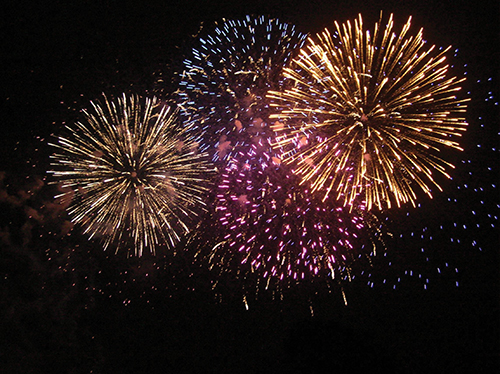By Bob Mann
The past several years, more Arizonans have come to enjoy setting off fireworks around New Year’s Eve and Fourth of July. It hasn’t always been that way.
For decades, fireworks were illegal in Arizona. On Dec. 1, 2010, that changed. Municipalities were able to pass laws permitting the use of certain kinds of fireworks. However, the law created confusion in many places. Although it might be legal to purchase fireworks in a city, that same city could still outlaw their use.
Last year, the legislature again took action to further a more wide-spread, consistent use of fireworks. In Maricopa and Pima counties, certain fireworks are legal to sell and use certain times of the year. Municipalities in these counties cannot outright ban the use of certain types of fireworks on private property, except under very limited conditions. For example, fireworks can be banned within a mile of a preserve or during times of extremely dry, dangerous conditions. In other Arizona counties, towns and cities are free to pass their own ordinances and can issue outright bans.
The list of “permissible consumer fireworks” (as they are legally known) that must be allowed in Maricopa and Pima counties is limited to ground and handheld sparkling devices, cylindrical fountains, cone fountains, illuminating torches, wheels, ground spinners, flitter sparklers, toy smoke devices, wire sparklers or dipped sticks, multiple tube fireworks devices and pyrotechnic articles.
If you are confused as to whether or not a specific firework is legal, you should ask yourself two questions:
Does this firework go into the air?
Is this firework supposed to explode?
If the answer to either of these questions is yes, then the firework is not legal.
Illegal fireworks include bottle rockets, skyrockets, missile-type rockets, helicopters, torpedoes, roman candles, firecrackers, aerial shells and mortars.
Even with last year’s legislation, there might still be some confusion. The dates during which permissible consumer fireworks can be sold are different from the dates that consumers can actually use such fireworks. Just because your local grocery store may start selling permissible consumer fireworks, this does not necessarily mean the fireworks can be used yet.
Arizona law allows the sale of permissible consumer fireworks from May 20 to July 6 and December 10 to January 3. The use of those fireworks (again, at least in Maricopa and Pima counties) is allowed only from June 24 to July 6 and December 24 to January 3. The sale and use of novelties known as snappers (pop-its), party poppers, glow worms, snakes, toy smoke devices and sparklers are permitted at all times.
Because there can still be confusion regarding legalities that are specific to individual locations, it is important that you check with your local fire department for additional regulations and dates before buying and using fireworks.
If you are disappointed that bottle rockets and exploding firecrackers are not legal, it may change in coming years. Recently, Arizona House Bill 2398 proposed an expansion in the kinds of permissible consumer fireworks in Arizona to include firecrackers and bottle rockets. Roman candles and large aerial fireworks would remain illegal. The bill narrowly failed in the Arizona Senate. Thus, aerial and explosive fireworks are still illegal. However, you can count on similar bills being debated in the future.
Bob Mann is a fireworks enthusiast and senior counsel at The Frutkin Law Firm.






